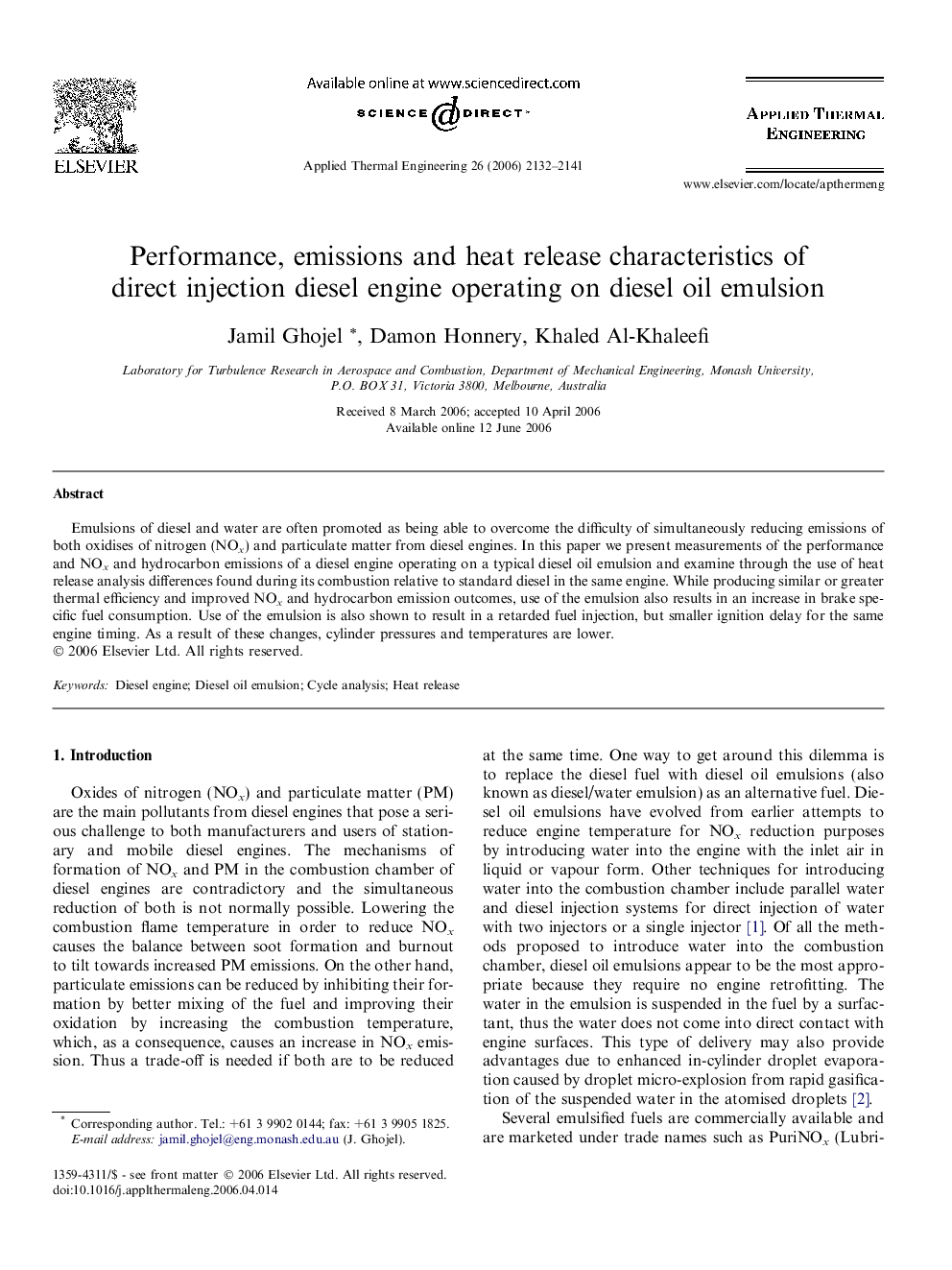| Article ID | Journal | Published Year | Pages | File Type |
|---|---|---|---|---|
| 649688 | Applied Thermal Engineering | 2006 | 10 Pages |
Emulsions of diesel and water are often promoted as being able to overcome the difficulty of simultaneously reducing emissions of both oxidises of nitrogen (NOx) and particulate matter from diesel engines. In this paper we present measurements of the performance and NOx and hydrocarbon emissions of a diesel engine operating on a typical diesel oil emulsion and examine through the use of heat release analysis differences found during its combustion relative to standard diesel in the same engine. While producing similar or greater thermal efficiency and improved NOx and hydrocarbon emission outcomes, use of the emulsion also results in an increase in brake specific fuel consumption. Use of the emulsion is also shown to result in a retarded fuel injection, but smaller ignition delay for the same engine timing. As a result of these changes, cylinder pressures and temperatures are lower.
